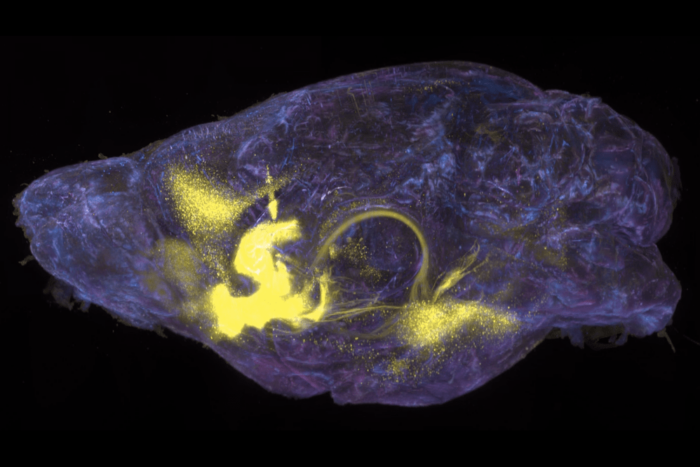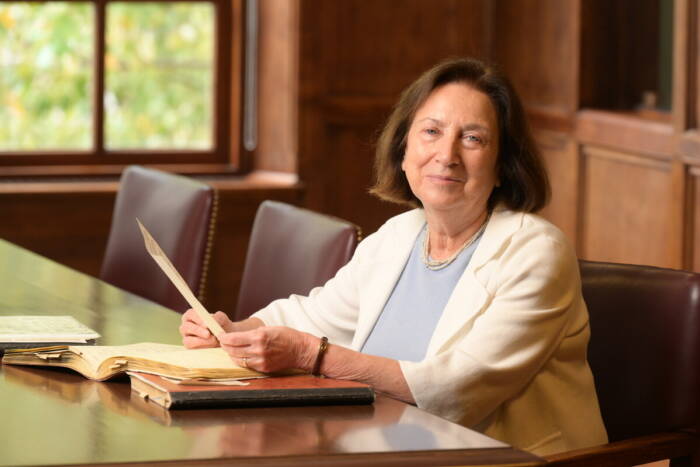Three geneticists win 2007 Pearl Meister Greengard Prize
The fourth annual Pearl Meister Greengard Prize has been awarded to Gail Martin of the University of California, San Francisco, Beatrice Mintz of the Fox Chase Cancer Center and Elizabeth Robertson of the University of Oxford. The award, created to recognize the accomplishments of outstanding female scientists and administered by The Rockefeller University, will be presented at a ceremony presided over by Rockefeller president Paul Nurse on March 25 in Rockefeller’s Caspary Auditorium.
The Pearl Meister Greengard Prize was established by Paul Greengard, Vincent Astor Professor at the university and head of the Laboratory of Molecular and Cellular Neuroscience, and his wife, sculptor Ursula von Rydingsvard. Greengard donated the proceeds of his 2000 Nobel Prize in Physiology or Medicine to Rockefeller University and, in partnership with generous supporters of the university, created the yearly award. Named in memory of Greengard’s mother, the prize was founded to honor extraordinary women whose contributions to science have not received proper recognition and acclaim.
The recipients of the 2007 prize were chosen for revolutionary contributions to the development of the transgenic technology that now enables scientists to create genetically tailored mice, a technology that has transformed biomedical research. “Because of the remarkable similarities between mice and humans at the genetic level, these powerful transgenic technologies have revolutionized our understanding of human biology and disease,” says Cori Bargmann, head of the Laboratory of Neural Circuits and Behavior, Howard Hughes Medical Institute investigator and a member of the Pearl Meister Greengard Prize selection committee. “Groundbreaking achievements by Drs. Mintz, Martin and Robertson have also helped open the way for today’s research on embryonic stem cells.”
Gail Martin, professor of anatomy and director of the department of developmental biology at the University of California, San Francisco, uses genetic analysis in mice to help define the role of fibroblast growth factors — signaling molecules involved in wound healing as well as the development of embryonic organs and blood vessels — in organogenesis in the vertebrate embryo. Martin coined the term “embryonic stem cell.”
Beatrice Mintz, Jack Schultz Endowed Chair and senior member of the Institute for Cancer Research at the Fox Chase Cancer Center, developed mouse models for the study of cutaneous melanoma — one of the fastest-growing cancers in the United States as it can be difficult to detect and is often metastatic.
Elizabeth Robertson, Wellcome Trust Principal Research Fellow and professor of developmental biology at the Sir William Dunn School of Pathology at the University of Oxford, uses mouse genetics to investigate cell interactions underlying mammalian development and immune recognition.
The recipients will share a $50,000 prize. The award ceremony March 25 will include comments from guest speaker Martha Sharp Joukowsky, professor emerita of old world archaeology and art at Brown University’s Joukowsky Institute for Archaeology and the Ancient World, as well as a panel discussion with the awardees. To RSVP for the event, please call 212-327-7728.


